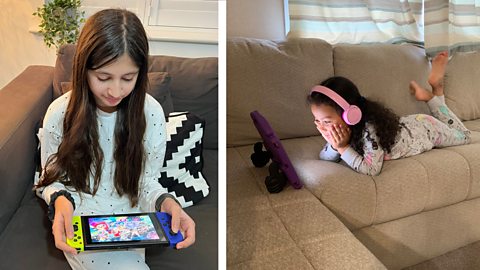Giving your child the freedom to explore the world on their own terms is a decision that no parent takes lightly.
On the one hand, you may feel anxious about the dangers they might face, or their inexperience in life; on the other hand, there's the reality that allowing them to get out there and make their own choices can lead to an independent young adult with a strong social circle.
Not only that – getting outdoors, specifically for adventurous, low risk play like climbing a tree or exploring somewhere new, has been shown to have a positive impact on the mental health of 5-11-year-olds.
So, what do today's parents think about giving their child outdoor freedom? How do they stop themselves from worrying? And do they monitor their child's location when they're away from home? BBC Bitesize Parents’ Toolkit spoke to 30 parents across the UK for the honest truth…
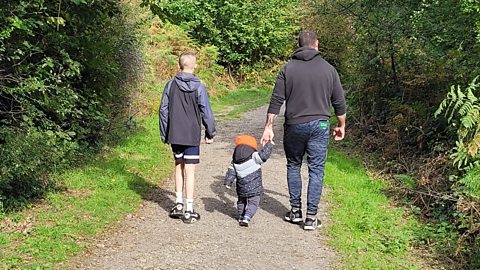
How can I persuade my family outdoors?
Getting outdoors can help you to relax, keep active, and improve your mood and overall mental health - but this isn’t always a priority for our children during the colder months, compared to tablets, WiFi, and a cosy blanket.
Almost all of the parents we spoke to describe their family as ‘outdoorsy’, but most still struggle to plan regular outdoor trips during winter.
Emma, who has three children aged nine, eight and one, explains, "My children definitely don't need any persuasion to be outdoors. I find it’s more difficult to keep them entertained indoors."
"Being outdoors is great for our wellbeing, but it does reduce in the winter due to how cold it can be. Then I find being on top of each other for long periods can be frustrating especially for my children, they seem to bicker more."
“I think it's important for all of our wellbeing to get outside for a bit of fresh air and good to get the kids away from TVs and devices” - Naomi
For our parent panel, it’s easy to recognise the benefits of getting outdoors with their children, but, of course, the winter rain and cold is a big consideration for many. Snow, however, is usually a bonus, including for Adrian, whose family love a snowball fight.
When snow is scarce, animals and pets are a big incentive for younger and older children alike to join the family trip. Whether it’s Sarah, who goes on long walks to woodlands and beaches with her 12-year-old and their labradoodle, Angus, or Mark who visits the wild horses in a local field with his daughters.
And finally, many of our parents have found success by including a little novelty or treat in their outdoor adventures. Despite the weather, Christmas markets were a huge hit for families over the winter holidays, especially if sweet and savoury snacks are involved, and some planned bigger trips, like Renee who travelled to Whitby with her family by steam train.
James, who has two sixteen-year-olds, a seven-year-old and a four-year-old in their blended family, sums it up…
‘As the girls have gotten older they join us less, unless there is something else planned. It normally ends in a cafe or pub for a hot choc (and a pint).’

Are teens still getting outdoors?
You might have memories of your teenage years spent with friends in the local park, or wandering around the neighbourhood, but there’s no denying that things have changed a lot in the last 10 or 20 years, particularly when it comes to technology and social media.
Are teens still heading out to see friends after school or on the weekends in the same way?
Many, like Sarah Louise, who has three teenage sons, recognise that phones and tablets often create another reason for young people to stay indoors and “[play] on their devices talking to their friends”.
However, there’s clearly still a great desire for older children to meet up with friends independently and in-person, away from home and school, and the majority of our panel with older children expressed this as a positive thing that they wanted to encourage in their child…
My eldest daughter is high school age. From the age of 12 I have actively encouraged her to go out with friends, take walks together, go to the cinema, take different types of transportation. I believe that, by doing this, she is widening her social circles, increasing her self-esteem and demonstrating that she is able to do things by herself, making her feel pride in herself. – Chris K
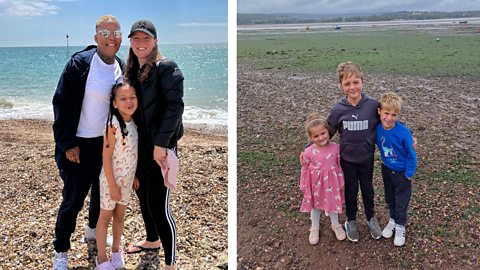
What freedom should I give my child?
The point at which our parents decide to give their child the freedom to explore, and what that freedom looks like, varies depending on their situation.
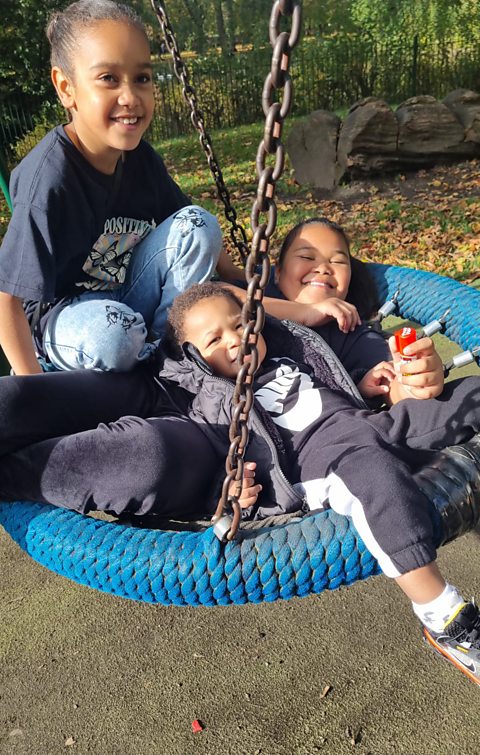
Often, but not always, it comes down to their child’s age. Other considerations include where they live and where their child can get to, as well as how responsible their parents feel they are - as James explains, “I think it's a maturity/street wise requirement”.
Younger children are sometimes given freedom within the limits of adult supervision. This could be to roam around the park, or play with friends in front of the house on a quiet cul-de-sac, like Chris B’s eight-year-old, but other parents, like Shoeb, who has a seven-year-old, simply feel it is too early…
“I do not let my son go out by himself. I do not trust the world at the moment.”
Caroline, who lives in the Midlands with her two children, explains her process…
“I started letting my children go out on their own from age 8. From then, they could walk on their own to the local shop, but they started doing this more frequently from 10 or 11. My son learned to ride a bike this year at age 11, and he only went off round the neighbourhood within a quarter mile or less, which was his own decision, to stay close to home.”
Claudia, who lives in Edinburgh, has other considerations…
“My boys are 17 and 16, so they are fully independent, but I still ask them to let me know where they are and we have a system in case of emergencies."
“My youngest boy is totally dependent, wheelchair-bound and not verbal so is always with us, but that doesn't mean we are stuck in the same place all the time. We try to do as many outdoor activities as possible and he has done tree climbing, special cycling and trying the special equipment in a play park.”
She also explains that their holidays always include trekking – “even for our youngest, that loves bumpy roads on his wheelchair.”

The level of independence in older children and teenagers is even more varied for our panel than with younger children. A few parents agree that they’d want to give their child ‘complete control’, or lots of independence at around sixteen years old, including Justin…
“At the age of 16, I would like to think that both my sons will have a moral compass that will allow them to choose who is appropriate to call a friend and interact with socially.” – Justin
And Laura, whose eldest is 14 years old, explains that…
“When my eldest son is out, I don't really have any control over where he goes. I don't set him limits as I know he never ventures too far anyway and I just hope that he has enough common sense to ring me if he needed me.”
But for the parents of teens on our panel, freedom usually comes down to a few ground rules…
'Checking in' and tracking your child
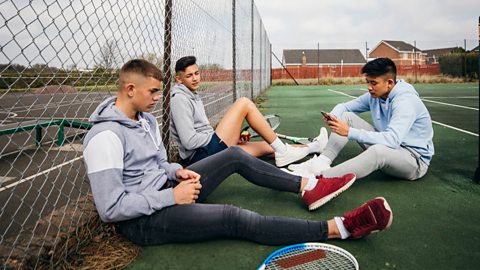
The parents of older children on our panel often speak about the importance of rules like curfews and ‘checking in’ while their child is out and about, which they say helps them feel more confident in giving them the freedom and space they need at that age.
However, ‘checking in’ means different things to different people – from a simple phone call, or instant message, to location-sharing apps.
Around half of the parents of older children on our panel use their child’s mobile phone to monitor where they are if they're out with friends or on their own. This could be asking them to voluntarily share their location via an app or messenger, to having an always-on 'tracking' system.
Nicola, is one parent who uses location tracking to check in with her 14-year-old…
"We have an app on our phones where we can check the whereabouts of one another and as long as he is home for his curfew then he basically goes wherever he wants. He normally visits the local shopping centre, football pitch or pool hall with his friends."
"He is fine with this as it means I can give him more freedom knowing that I can check where he is at any given time."
However, some parents see less appeal, including Lola, who has a 17-year-old. “I do not track his phone and I do not think I would feel comfortable doing this. I would not have liked it if my parents had this sort of technology when I was young!”
Others don't like the idea of ‘tracking’, but recognise the value of using location sharing as a last resort, like Claudia…
“I am not checking on them but if they are not back at the time they said and they don't answer or haven't called I can check the location and pick them up.”
And some, like Sarah from Wales see it as a two-way street, “My daughter actually asked me to have a tracker app so she could keep tabs on me!”

More from BBC Bitesize Parents' Toolkit…
Parents' Toolkit
Fun activities, real-life stories, wellbeing support and loads of helpful advice - we're here for you and your child.

Seven ways to get your kids outdoors
Getting your teens out of the house and into nature can boost their health and wellbeing. Tips on how to do it from parents who are outdoors enthusiasts.
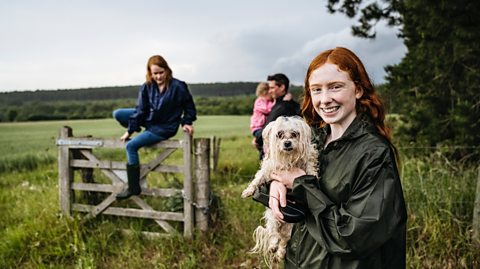
How to manage your child’s online world without clashing
Children and teens spend lots of time online for school and leisure, which can be a worry for parents. Here's some advice on managing your child’s screen time.
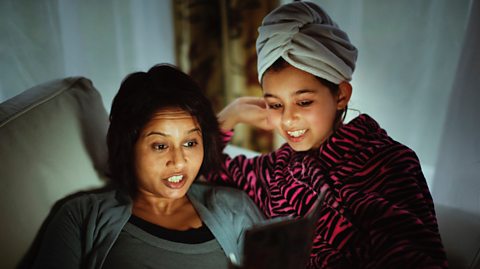
Why playing out and exploring is good for our kids
Steve Backshall, Helen Glover and child psychology expert Helen Dodd have some advice for parents.
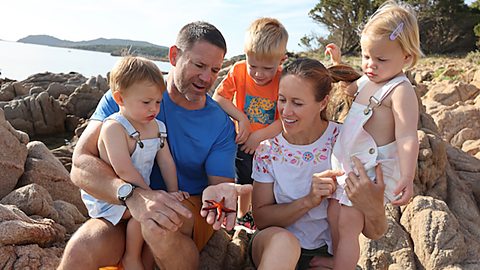
How to transform a smaller space for study or work
Many of us are having to make do with the little spaces in our homes for work or study. Here's how to make them feel bigger!

Dear Parents' Toolkit... How much screen time is too much?
Parents across the UK share their thoughts on screens and internet safety. Should I use them in parenting? What is 'screen guilt'? And how do I get my child away from them?
